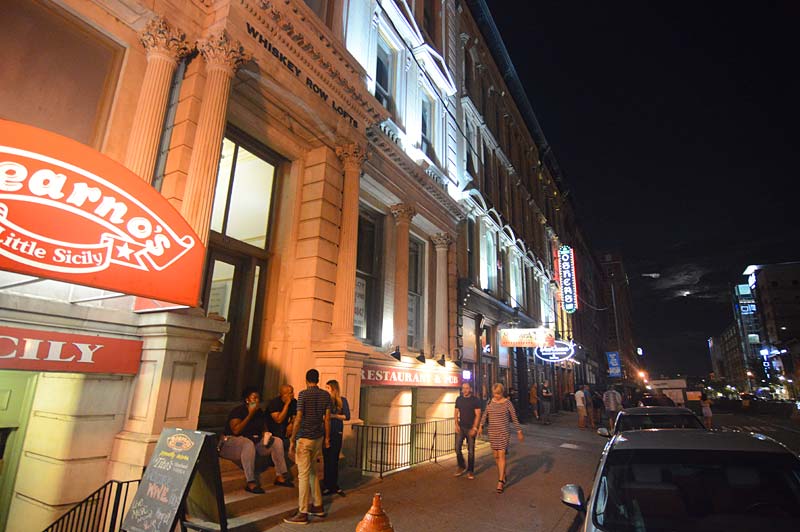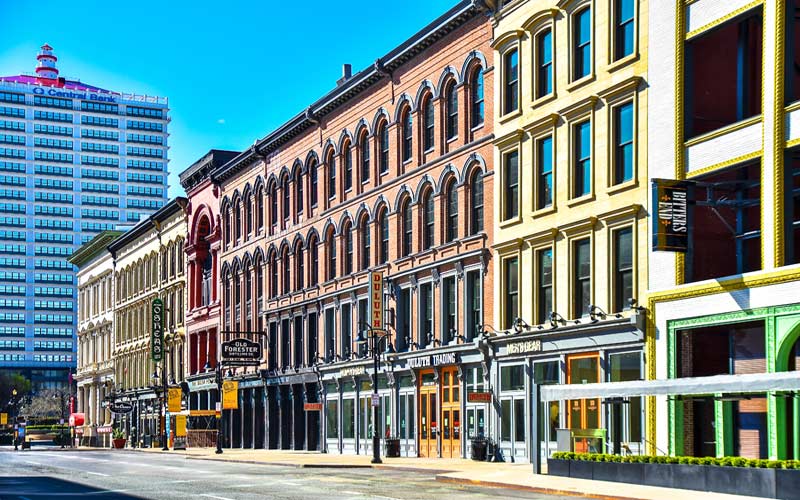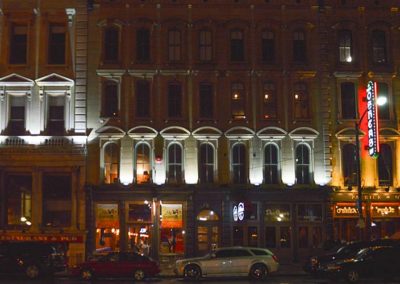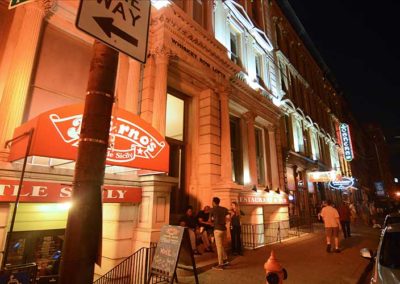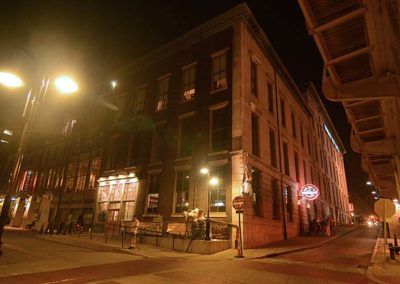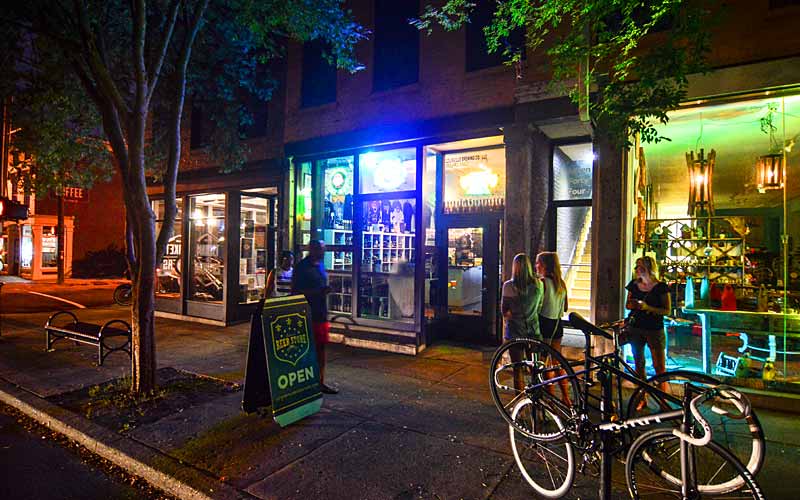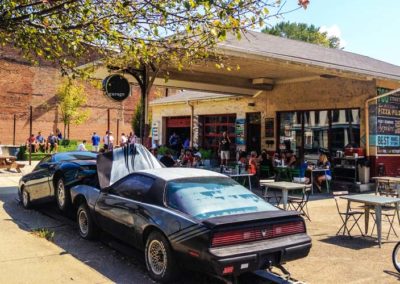Until the early 2000s, many E. Market St. buildings were being used by a homeless shelter. Businesses in the area put pressure on the shelter and began a hearing process for their buildings to be added to the historic register, forcing them to stop planned renovations of their buildings. The shelter eventually sold their properties and moved out and investors moved in, and plans to add the buildings to the historic register were called off.
The original Haymarket area occupied the blocks surrounded by Jefferson, Market, Preston, and 2nd streets, dating back to the 1800s, as a vendors’ open-air market, it was the center for the majority of the produce traded in the city.
Market St. originally had green spaces for markets that were later replaced by traffic lanes. In 1955, several companies formed an association and moved away from downtown, the original Haymarket buildings were demolished as part of urban renewal.
Part of the Phoenix Hill National Register Historic District, the area has a wide range of architectural styles, from pre-Civil War federal style town-homes and shotgun houses, to turn of the 20th century buildings built for the business boom following the Civil War.
Many of those buildings are home today to galleries, specialty shops, restaurants, and residences. The neighborhood’s The Green Building, at 732 E. Market, in a 1891 former dry goods store, is Louisville’s first commercial LEED Platinum structure, and Kentucky’s first LEED Platinum adaptive reuse structure. The building’s owner, Gil Holland, coined the term NuLu.
NuLu Business Association
